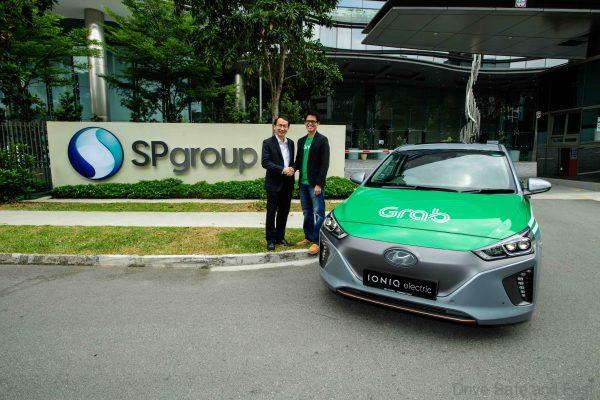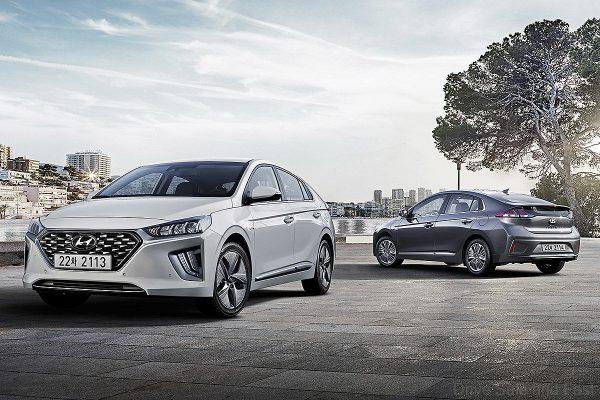Is GRAB Working With Hyundai On Singapore EV Factory
Our local agencies ignored GRAB in its infancy and now this multi-million dollar business is going to boost Singapore‘s job market and EV adoption?
In November 2018, Hyundai Hyundai Motor Co raised its stakes in growing Southeast Asian markets with a USD250 million investment in Singapore’s Grab (ride-hailing company). At the time, Hyundai and its affiliate Kia Motors Corp announced a soon to launch pilot electric vehicle (EV) project in Southeast Asia for 2019, starting with Singapore, where 200 EVs will be leased to Grab drivers.

The partnership was intended to help Grab lower car ownership and operating costs for its drivers where lower costs would help ride-hailing firms attract and retain drivers.
In January 2019, Grab purchased 200 units of the Hyundai Kona EV for their Singapore ride-hailing fleet making it the largest EV fleet at the time.
Then in December 2019, Grab launched its EV pilot project in Jakarta with 20 Hyundai Ioniq EV cars. Grab also signed a deal with Indonesian electricity provider Perusahaan Listrik Negara to collaborate in the development of electric vehicle charging stations in the country to facilitate the usage of EVs on Indonesia’s roads and highways.

Grab’s program in Singapore which is a joint venture with Hyundai to supply the battery powered vehicles and there is SP Group supplying the charging infrastructure. Together, they have leased and managed 200 vehicles until the end of 2019 in Singapore alone, providing both the cars and charging infrastructure at attractive terms.
Even after accounting for higher rental rates and waiting time to charge, which make the actual costs higher than normal, the average participating Grab driver was be able to make around 10 per cent to 20 per cent more per day than a driver leasing a typical internal combustion engine vehicle. This was the strong incentive to switch. The same approach could be applied to food delivery and other fleets.

The Hyundai Motor Group (HMG) Singapore facility will also put together SKD/CKD kits sourced from an overseas production facility and not conduct full-scale manufacturing. Still, a possible advantage for customers is Battery as a Service (BaaS) ownership model for next-generation of Hyundai EVs.
Under BaaS, the battery price is not included in the vehicle sales price and finance payments. So, the initial cost to switch to a Hyundai Ioniq 5 and a Hyundai Ioniq 3 would be low. A battery typically accounts for 50% of the cost of EVs, making them expensive in an outright purchase model.
Customers going for the BaaS model would get to conveniently take a battery subscription plan, and thus, their purchase price for an EV in Singapore would be significantly lower.

Hyundai aims to collect data such as on battery charging from cars it leases to Grab to develop vehicles better tailored for Southeast Asia, namely Indonesia and Thailand where EV adoption is increasing as both governments provide clear written incentives for EV manufacturers.
The Singapore government plans to expand the country’s EV public charging infrastructure from 1,600 to 28,000 charging points in coming years. Its goal is to eliminate vehicles with internal combustion engines plying Singapore roads from 2040 onwards and its looks possible as they have a clear written program with no hidden agendas.
Currently, there is no automobile manufacturing industry in Singapore.

In Singapore, the phasing-out of internal combustion engine vehicles by 2040 will accelerate the adoption of electric vehicles (EVs) and the rollout of more EV charging points. With the Singapore government’s target to increase solar penetration to reach 2GWp by 2030, integrating vehicle-to grid (V2G) technology into the national grid can be the key to managing the intermittency of renewables while maintaining grid stability and reliability.
Looking at all the above facts, we are almost sure that Grab is some what involved in the decision to produce Hyundai semi-knocked down electric vehicles in Singapore. What do you think?